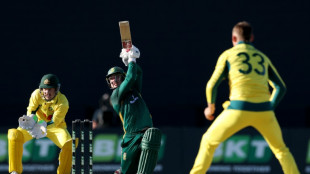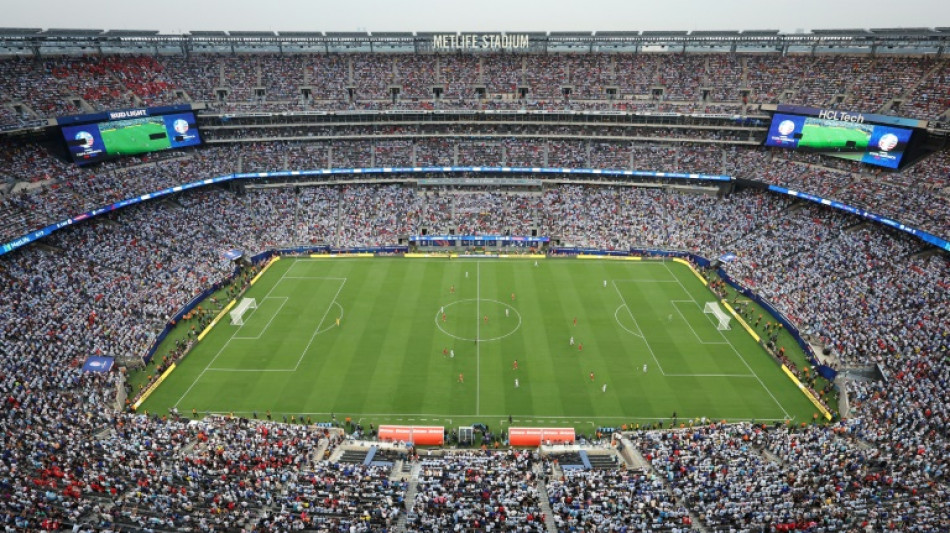
-
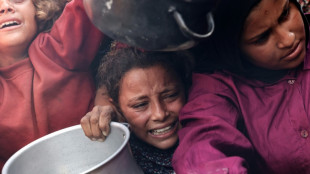 UN declares famine in Gaza as Israel threatens to raze city
UN declares famine in Gaza as Israel threatens to raze city
-
UN declares famine in Gaza, first ever in Middle East
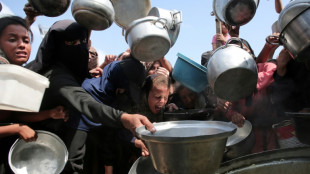
-
 AI helps UK woman rediscover lost voice after 25 years
AI helps UK woman rediscover lost voice after 25 years
-
Women's World Cup games moved out of Bengaluru months after tragedy
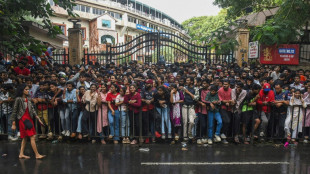
-
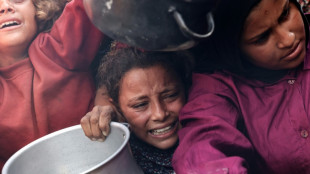 UN declares famine in Gaza, blames Israel
UN declares famine in Gaza, blames Israel
-
Australian Rules player body urges 'united approach' after homophobic slur

-
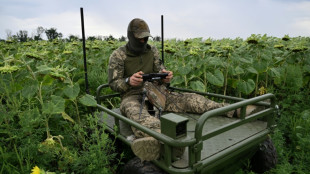 Under a drone canopy, Ukraine army medics rely on robots and luck
Under a drone canopy, Ukraine army medics rely on robots and luck
-
India walks back order to clear Delhi of stray dogs
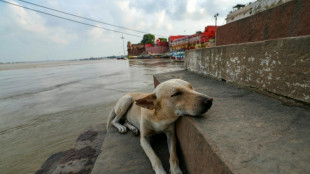
-
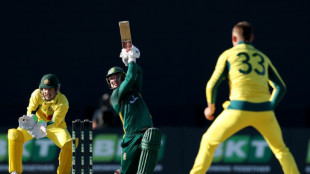 Breetzke, Stubbs star as South Africa post 277 in 2nd Australia ODI
Breetzke, Stubbs star as South Africa post 277 in 2nd Australia ODI
-
Pressure on Merz as Trump tariffs hit German economy
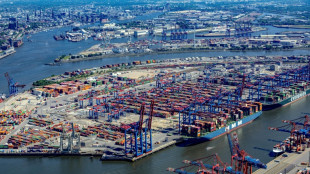
-
 Australia orders audit of crypto trading giant Binance
Australia orders audit of crypto trading giant Binance
-
Israel vows to destroy Gaza City if Hamas doesn't disarm, free hostages
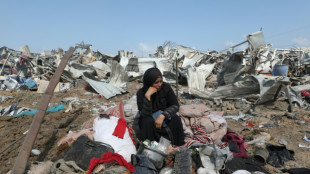
-
 Alonso and Real Madrid look for more fluidity on trip to Oviedo
Alonso and Real Madrid look for more fluidity on trip to Oviedo
-
Bumpy skies: How climate change increases air turbulence
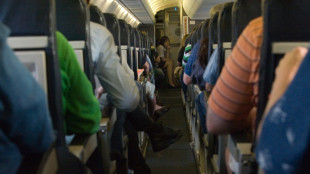
-
 Chinese tiger, French berets and space cannons mark Gamescom 2025
Chinese tiger, French berets and space cannons mark Gamescom 2025
-
US judge orders dismantling of Trump's 'Alligator Alcatraz'
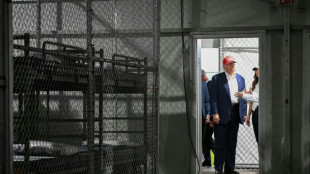
-
 Evicted from their forests, Kenyan hunter-gatherers fight for their rights
Evicted from their forests, Kenyan hunter-gatherers fight for their rights
-
Japan city proposes two-hour daily smartphone limit

-
 A rise in the mountains as Vuelta a Espana cranks up the climbing
A rise in the mountains as Vuelta a Espana cranks up the climbing
-
Thai ex-PM Thaksin acquitted of royal insult charges
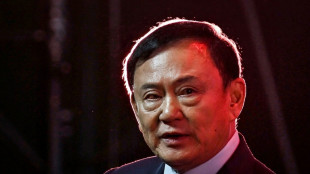
-
 Japanese amateur boxer in intensive care after latest incident
Japanese amateur boxer in intensive care after latest incident
-
US wine sellers left in limbo despite EU tariff deal

-
 Erik Menendez denied parole, decades after parents' murders
Erik Menendez denied parole, decades after parents' murders
-
Under Trump pressure, US Fed chief to walk tightrope in speech
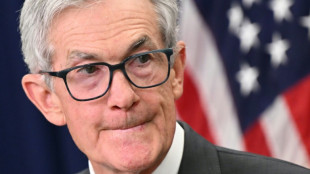
-
 Nvidia chief says H20 chip shipments to China not a security concern
Nvidia chief says H20 chip shipments to China not a security concern
-
North Korea's Kim decorates troops who fought for Russia against Ukraine

-
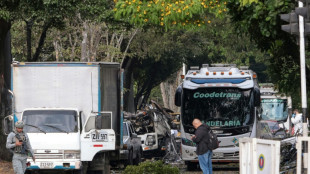 Two separate guerilla attacks kill 18 in Colombia
Two separate guerilla attacks kill 18 in Colombia
-
Rice prices up 91 pct year-on-year in Japan

-
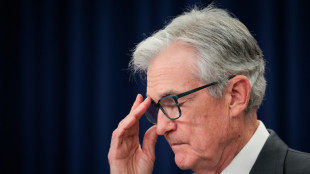 Asian markets tick up as investors eye Jackson Hole meeting
Asian markets tick up as investors eye Jackson Hole meeting
-
De Bruyne leads Napoli's Serie A title defence as Lukaku injury causes concern

-
 Pollard, Albornoz hailed as key Rugby Championship clashes loom
Pollard, Albornoz hailed as key Rugby Championship clashes loom
-
Marseille plunged into crisis with season just getting started

-
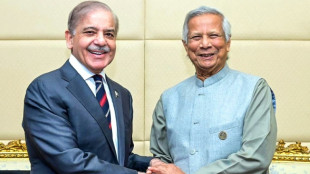 Pakistan woos old rival Bangladesh, as India watches on
Pakistan woos old rival Bangladesh, as India watches on
-
Documents show New Zealand unease over Chinese warships in South Pacific

-
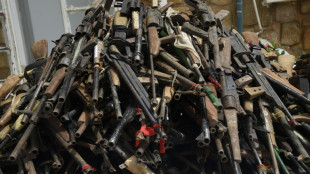 $346 mn US-Nigeria arms deal sets rights groups on edge
$346 mn US-Nigeria arms deal sets rights groups on edge
-
Got the scoop: Bear takes over California ice cream shop

-
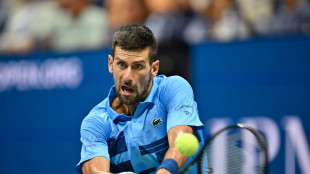 Rested but rusty Djokovic plots US Open ambush
Rested but rusty Djokovic plots US Open ambush
-
'Tough lessons' helping Sabalenka ahead of US Open defence

-
 Meta makes huge cloud computing deal with Google: source
Meta makes huge cloud computing deal with Google: source
-
Blockbuster 'Sincaraz' rivalry ready to light up US Open
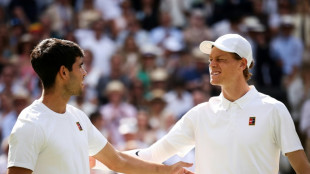
-
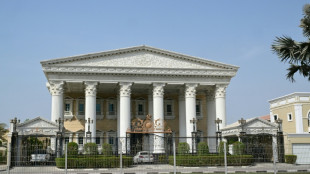 Less tax, more luxury: millionaires flock to Dubai
Less tax, more luxury: millionaires flock to Dubai
-
Akie Iwai leads, Canadian teen Deng in hunt at LPGA Canadian Open

-
 Chile, Argentina football fans trade blame over stadium violence
Chile, Argentina football fans trade blame over stadium violence
-
Palestinian camps in Lebanon begin disarming

-
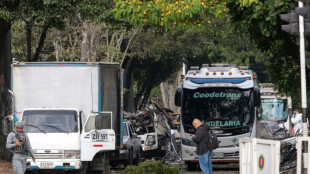 Five dead as 'thunderous' bomb attack hits Colombian city
Five dead as 'thunderous' bomb attack hits Colombian city
-
Henley leads PGA Tour Championship with Scheffler in pursuit

-
 US Supreme Court allows cuts in NIH diversity research grants
US Supreme Court allows cuts in NIH diversity research grants
-
Why fan violence still sullies Latin American football

-
 Lil Nas X arrested after nearly naked nighttime stroll in LA
Lil Nas X arrested after nearly naked nighttime stroll in LA
-
Texas, California race to redraw electoral maps ahead of US midterms
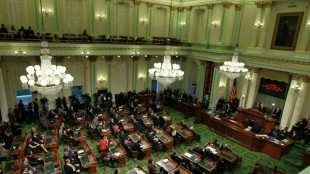

Canada, US, Mexico brace for World Cup extravaganza
The largest and most complex World Cup in history kicks off in just over a year's time, with the United States, Canada and Mexico co-hosting the football extravaganza against a backdrop of political tension triggered by Donald Trump.
Forty-eight teams and millions of fans are set to descend on North America for the first ever World Cup shared by three nations, with the tournament getting under way on June 11 next year.
In theory, the 23rd edition of the most popular sporting spectacle on the planet has all the makings of a successful tournament.
An array of venues ranging from Mexico's iconic Estadio Azteca to the glittering $5 billion SoFi Stadium in Los Angeles will play host to 104 games spread over nearly six weeks.
The United States will host the bulk of those fixtures -- 78 -- with Canada and Mexico staging 13 each.
All games from the quarter-finals onwards will be held in the United States, with the tournament culminating in the final at New Jersey's 82,500-seater MetLife Stadium on July 19, 2026.
- 'Like 104 Super Bowls' -
American officials believe the return of the World Cup to the country -- 32 years after the United States hosted the 1994 finals -- could represent a watershed moment for football in the country.
"The World Cup is going to raise the attention of the sport in ways that nobody ever dreamed of," said Don Garber, the commissioner of Major League Soccer.
FIFA's President Gianni Infantino meanwhile has been hyping next year's finals as the equivalent of "104 Super Bowls", contrasting the World Cup's estimated six billion viewers to the 120 million or so who tune in for the climax of the NFL season.
There are historical precedents which suggest the hype might be justified. The 1994 World Cup in the United States remains the best attended World Cup in history, with an average of 68,600 fans flocking to each game.
Yet while organisers eagerly anticipate a commercial success, with one FIFA estimate suggesting it could generate a mammoth $11 billion in revenues, questions over other aspects of the tournament remain.
The 48 teams -- up from 32 in 2022 -- will be spread into 12 groups of four, with the top two teams in each group advancing to the knockout rounds, and the eight best third-placed teams joining them to make up a last 32.
That expansion is likely to reduce the sense of jeopardy in the first round, a problem seen in other major championships which have increased in size in recent years.
- Visa backlog -
There is also the question of how the polarising policies of US President Trump may impact the tournament.
Since taking office, Trump has launched a global trade war, repeatedly threatened to annex World Cup co-host Canada and launched an immigration crackdown at US borders which has seen overseas visitors from countries like France, Britain, Germany and Australia either detained or denied entry in recent months.
Trump this week signed a travel ban on 12 countries including Iran, who have qualified for the World Cup, but the ban will not apply to players taking part in the tournament.
Trump, who is chairman of a White House task force overseeing preparations for the World Cup, says overseas fans travelling to the tournament have nothing to fear.
"Every part of the US government will be working to ensure that these events are safe and successful, and those traveling to America to watch the competition have a seamless experience during every part of their visit," Trump said last month.
FIFA chief Infantino, who has forged a close relationship with Trump, echoed that point, insisting that America was ready to "welcome the world."
"Everyone who wants to come here to enjoy, to have fun, to celebrate the game will be able to do that," Infantino said.
With one year to go however, it is by no means clear that Infantino's pledge will hold up.
US Secretary of State Marco Rubio said last month that some embassy staff may be required to work double-shifts to expedite visa processing, citing the example of Colombia, where US visa wait times are currently 15 months.
"If you haven't applied for a visa from Colombia already, you probably won't get here in time for the World Cup unless we go to double shifts," Rubio told lawmakers on Capitol Hill.
Those fans who do make the trip to North America may also find themselves having to fork out a small fortune due to FIFA's reported decision to use dynamic pricing to determine ticket prices.
That system, where prices on ticketing websites fluctuate according to demand, may well force fans to shell out thousands of dollars to obtain tickets for the highest profile games.
"Dynamic pricing does not belong in football because it is an exploitation of fans' loyalty," Ronan Evain, the executive director of the Football Supporters Europe fan group told The Times. "It would be a fiasco for FIFA to use it for the World Cup."
K.AbuTaha--SF-PST


